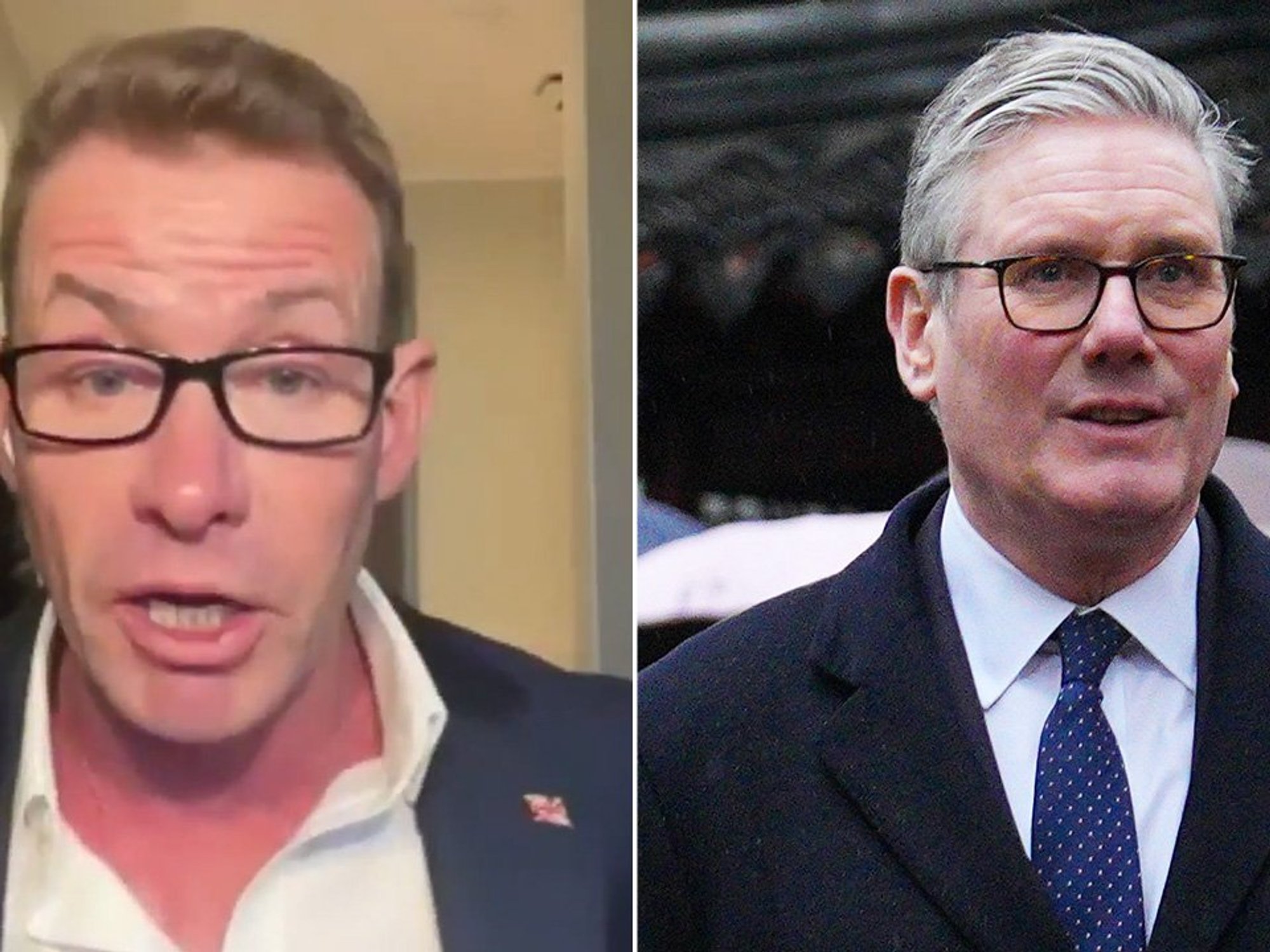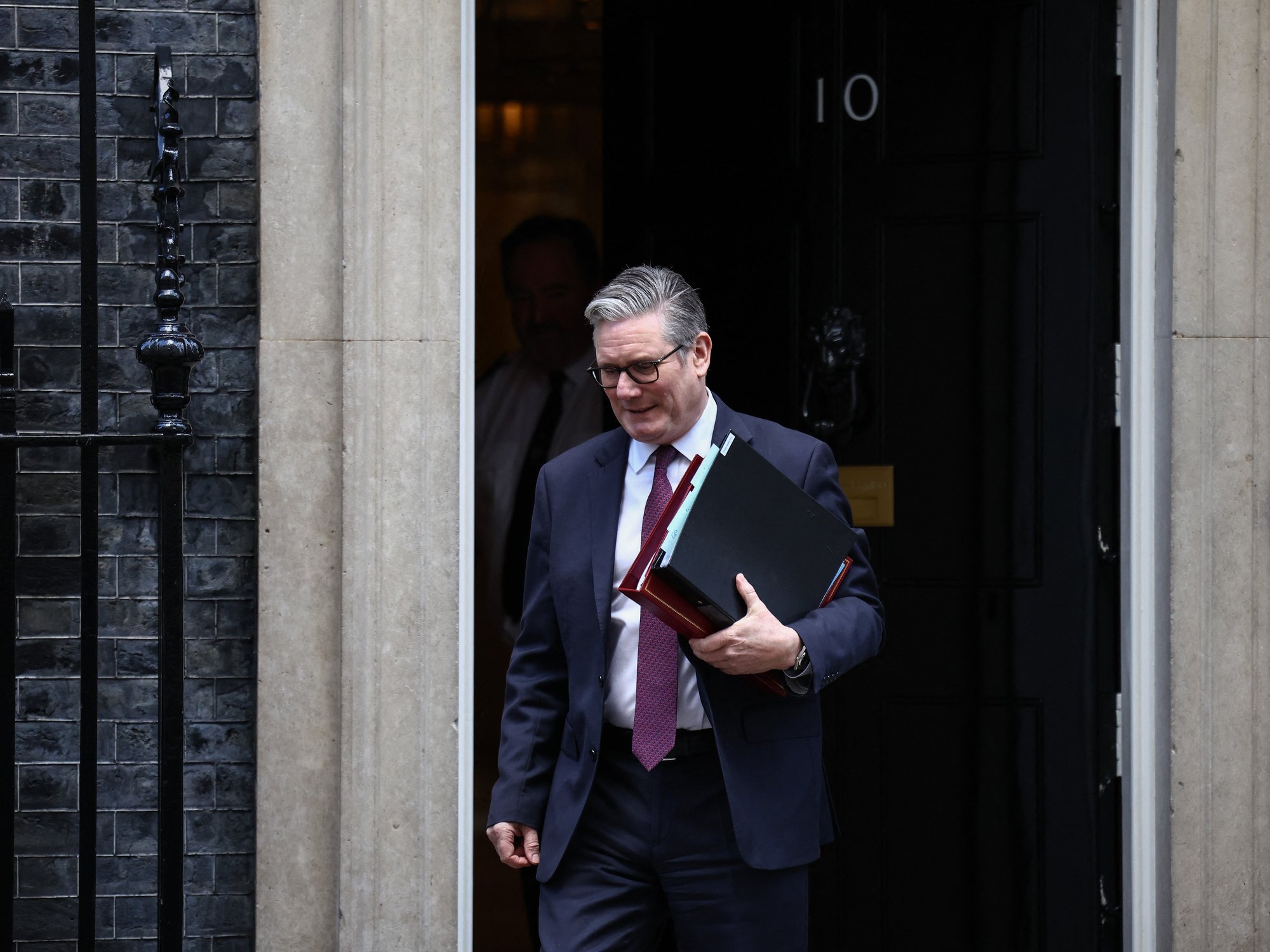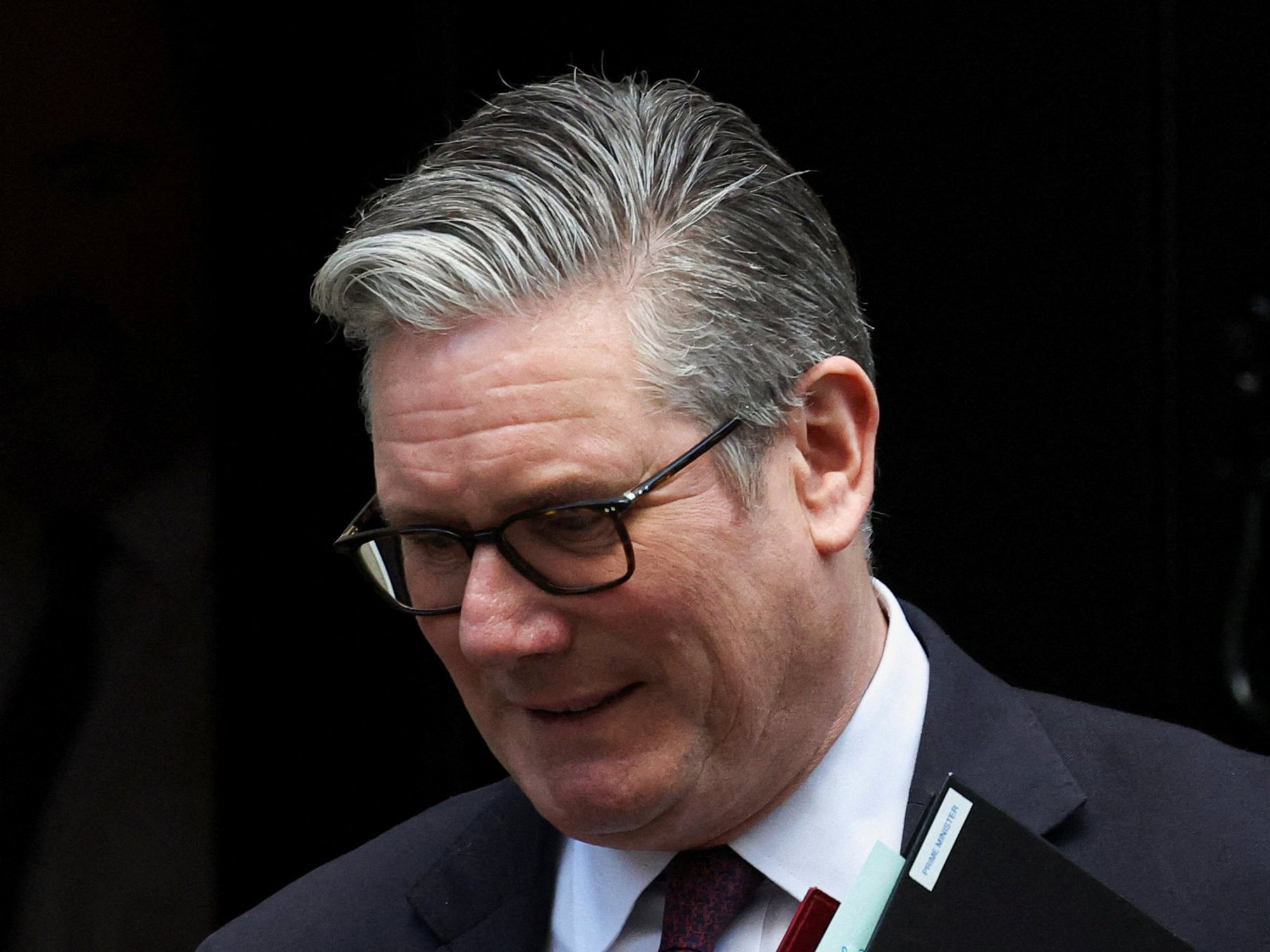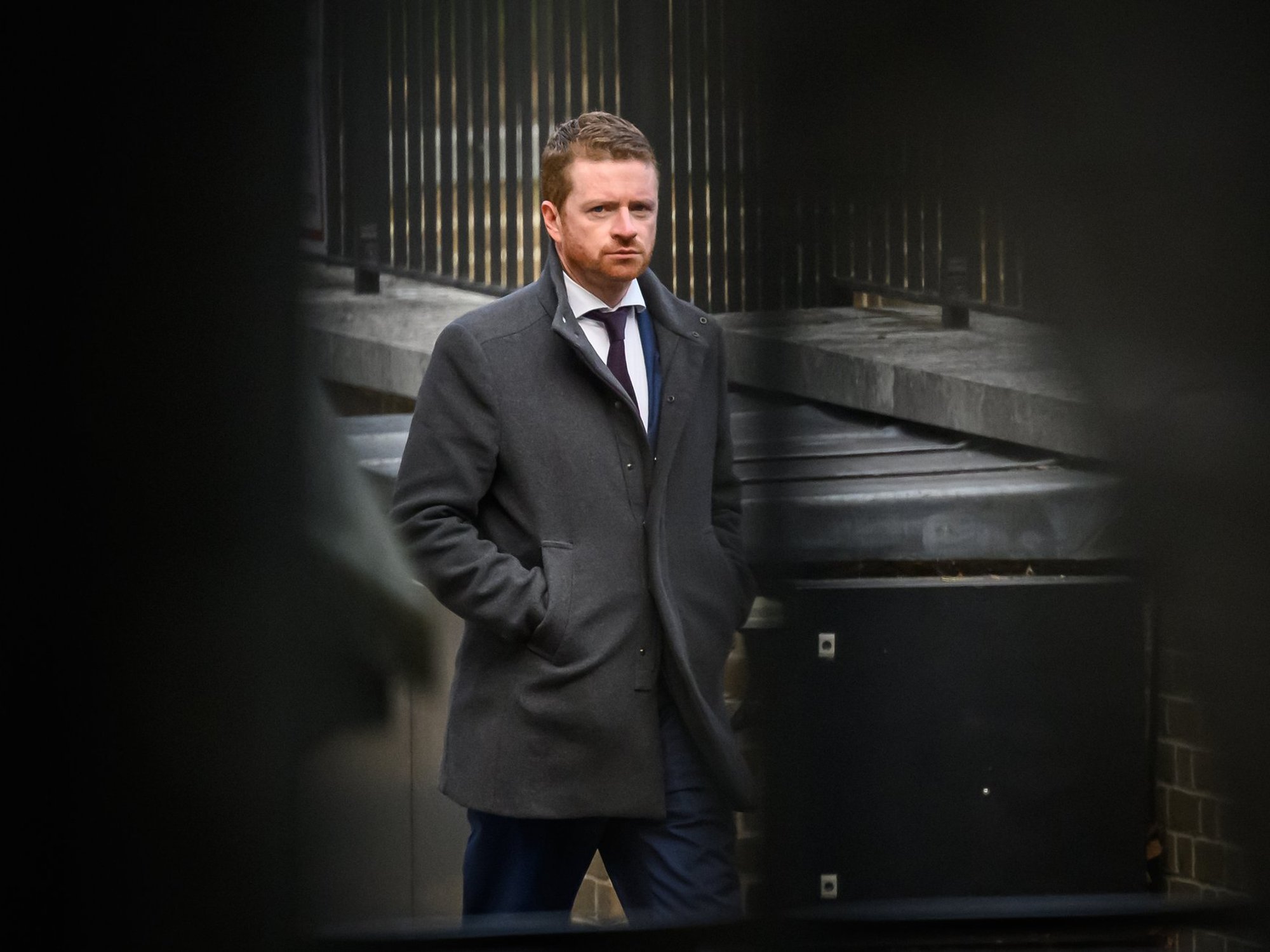Nigel Farage delivers ANOTHER crushing blow to Labour after Tory defector hands Reform huge election win

Nigel Farage’s new migration plan explained _ Reform UK ramps up policy push as Labour flounders |
GB NEWS

Reform's number on the council has now increased to five after the Conservative defector triumphed
Don't Miss
Most Read
Trending on GB News
Nigel Farage has delivered another crushing blow to Labour as Reform UK continues to surge in local elections.
Thetford Castle council, in the Breckland area of Norfolk, turned turquoise on Wednesday after the party gained the ward from Labour.
Reform UK won nearly half of the vote, with 47.3 per cent, while Labour failed to gather momentum.
Keir Starmer slumped to 26.7 per cent, down from 49.4 per cent; The Conservatives fell from 33.7 per cent to 15.1 per cent, and Ed Davey's Liberal Democrats scored a modest 10.9 per cent.
TRENDING
Stories
Videos
Your Say
Reform's number on the Breckland Council has now increased to five after the conservative defector, who left the Tories in January, Grahame Middleton, triumphed.
The party has won all five by-elections in the Conservative-controlled council since first succeeding in February.
The vote was triggered after the resignation of Labour's Hazel McCambridge, who stepped down at the end of July, having been elected in May 2023.
Mr Middleton said: "I'm very pleased to welcome Grahame to our group at Breckland Council. Reform has won every by-election this year at Breckland and this now takes us up to a group of five. This stunning result is significant as it is a gain in a strong Labour ward. This now proves that Reform can win anywhere."
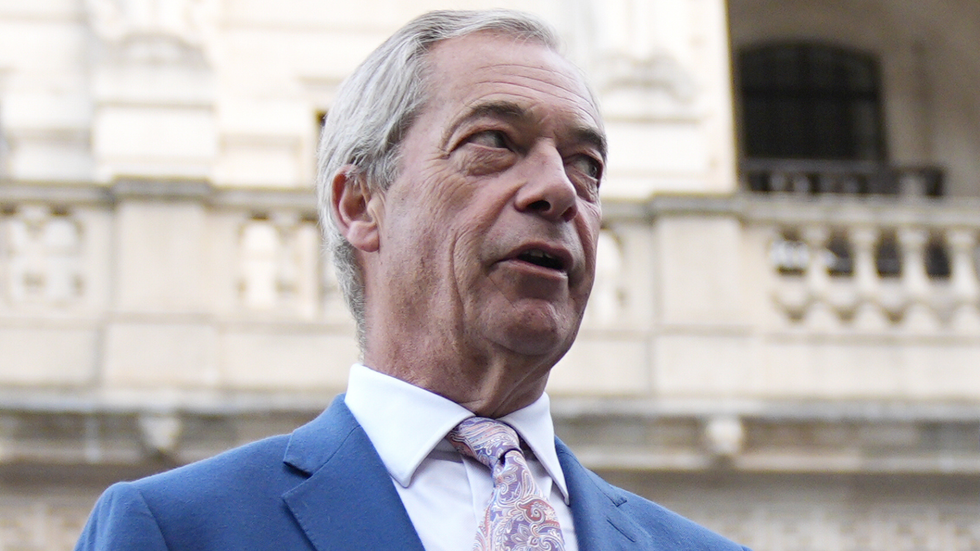
Nigel Farage has delivered another crushing blow to Labour after Reform UK continues to surge in local elections
|GETTY
Thetford Castle (Breckland) Council By-Election Full Result:
Reform: 47.3 per cent (New)
Labour: 26.7 per cent (-22.7)
Conservative: 15.1 per cent (-18.6)
Liberal Democrats: 10.9 per cent (New)
No Independent (-16.9) as previously.
Reform GAIN from Labour.
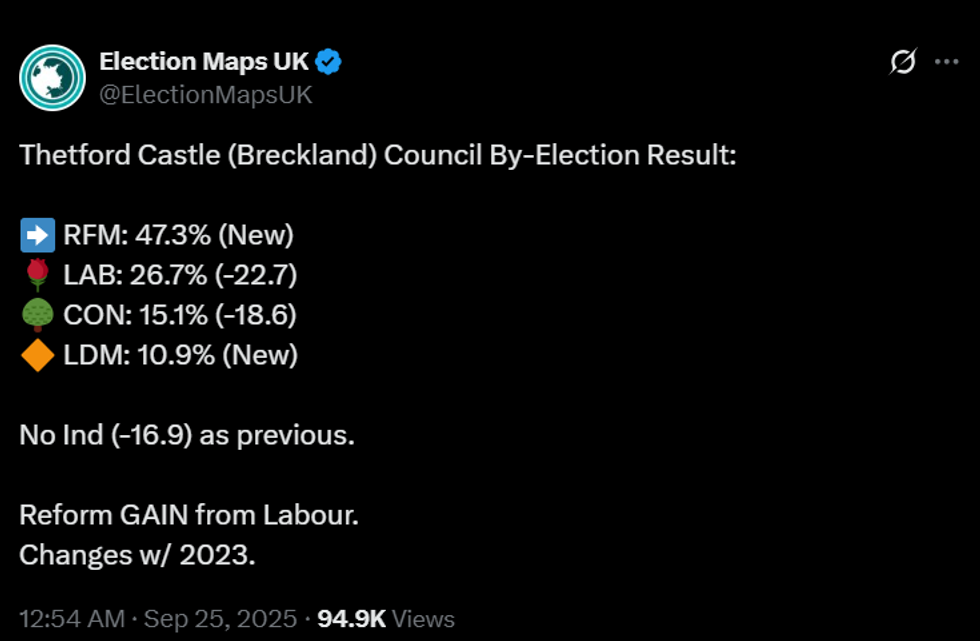
Thetford Castle (Breckland) Council By-Election Full Result:
|X
Reform UK's new migration policies
Notably, the huge win came days after Reform UK announced a raft of radical migration policies.
The most divisive proved to be a pledge to abolish Indefinite Leave to Remain (ILR), which is the main route for migrants to settle in Britain and can be acquired after five years of legal residence in the UK.
Mr Johnson introduced the policy after ending freedom of movement in 2021.
Instead, migrants would need to apply for new visas every five years, aligning with the Reforms policies of reducing the number of new arrivals and facilitating the deportation of criminals and irregular migrants.
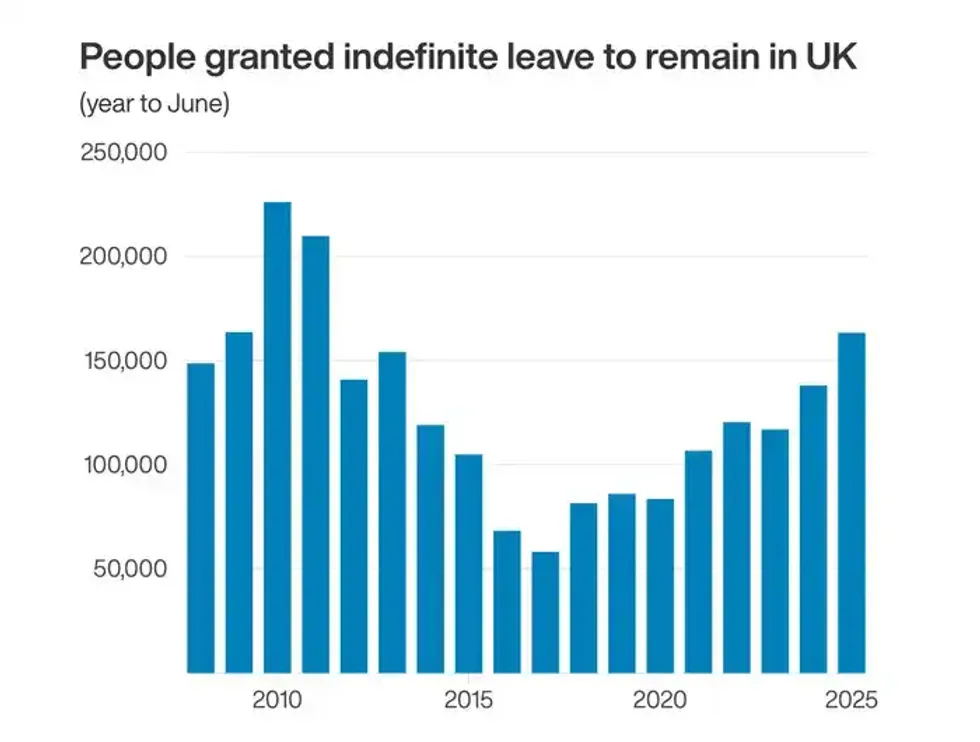
Home Office figures reveal that in 2022, 572,815 applications to extend foreign nationals’ stay were approved — up 42 per cent on the year before
|PA/Home Office
Reform UK also plan to ban anyone who is not a UK citizen from claiming benefits and force those applying for citizenship to renounce other citizenship.
On Monday, Mr Farage told reporters: "In particular, what we’re focusing on this morning is the ‘Boriswave’.
"I think the millions that came in the years of his premiership represents the greatest betrayal of democratic wishes, certainly in anyone’s living memory. This is not what Brexit voters wanted, and it’s certainly not what any Conservative voter wanted from 2010 onwards.
"Far too many that have come don’t work, have never worked and never will work. The ability to bring dependants of all kinds, and when you realise that most that come are very low-skilled, and on very low wages, you start to get a very, very different picture. In fact, you start to get a massive benefits bill."
The Boriswave refers to the large number of migrants who settled in the UK under Boris Johnson's premiership when he implemented the ILR status.
Under the new outlined proposals, Nigel Farage would attempt to force applicants coming to Britain to meet specific criteria, including a higher salary threshold and a better standard of English.
They would have to have lived in the UK for seven years, up from five, and there would be tighter restrictions on bringing spouses and children to the UK.
Based on initial projections that 800,000 people would be eligible for ILR between 2026 and 2030, the Centre for Policy Studies initially suggested scrapping the scheme could save the taxpayer £234billion, equivalent to £8,200 for every UK household, spread across several decades.
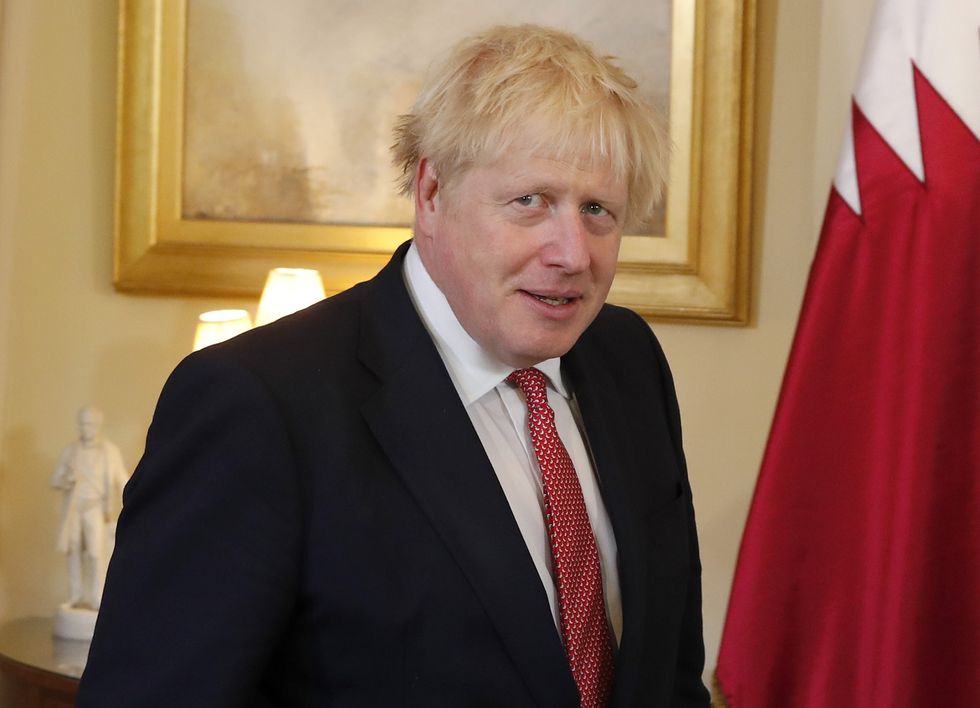
The Boriswave refers to the large number of migrants who settled in the UK under Boris Johnson's premiership when he implemented the ILR status
| PAHowever, the CPS later distanced itself from this figure, stating that since it had been a lifetime estimate, it should no longer be used.
The saving estimate was also called into question after it emerged there would be a carve-out for EU citizens with settled status.
Government sources have said there are 777,000 foreign Universal Credit claimants with this status.
When questioned over the CPS figure, Mr Farage doubled down, claiming it was an underestimation: "The £230 billion figure, as Zia (Yusuf, head of policy) has just said, is without a doubt too low. It underestimates things, I suspect many more than 800,000 actually will apply for indefinite leave to remain, plus it’s quite tough to get all the figures.
"And if you go back to those who have already been granted indefinite leave to remain, without doubt the number is considerably bigger."
In a GB News poll, 87 per cent of the 3,287 respondents answered yes to "Would abolishing ILR solve Britain's migration problem?", while only 13 per cent said no.
More From GB News





